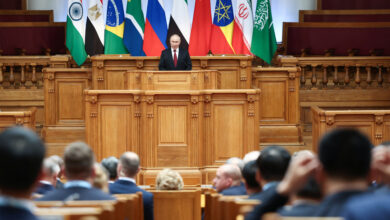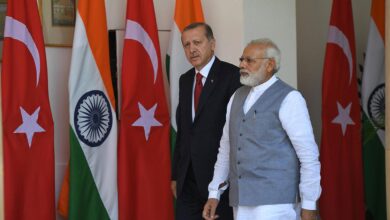Human Rights Chief Urges Labour to Drop Netanyahu Arrest Warrant Challenge

One of the chiefs of human rights has called on the Labour Party to drop the challenge that had sought to invalidate the arrest warrant issued against Israeli Prime Minister Benjamin Netanyahu. International scrutiny has been increasing over the involvement of Netanyahu in alleged human rights violations and war crimes.
The Netanyahu Controversy
For most of his career, Benjamin Netanyahu was considered one of the more controversial figures on the international scene and among the longest-serving Prime Ministers in Israel. His government’s policies drew extensive criticism against Palestinians. He is accused of war crimes and human rights abuses over incidents related to military operations in Gaza and the expansion of Israeli settlements in the West Bank. For many, these acts are considered unequivocal violations of international law, and those responsible must be brought to justice.
The Arrest Warrant:
One of the contentious issues was an arrest warrant for Netanyahu. The matter has to do with charges that, as a prime minister, his actions have caused hundreds of Palestinians to die and suffer. Indeed, there have been numerous calls by international human rights organizations to prosecute such leaders accused of atrocities; this, of course, would make the Netanyahu case one of the most visible ones.
Labour Position:
The Labour Party has also come out very strongly on the issue, trying to annul the warrant of arrest because it could undermine the diplomatic process and may lead to destabilization of the Middle East. Labor takes this position based on the general policy of engaging in diplomacy—not penal action, which would increase tension.
The intervention of the UN Human Rights Chief:
This stance has, however, been opposed by human rights advocates. Recently, a human rights chief called on Labour publicly to drop its challenge against the warrant of arrest, saying that Netanyahu’s prosecution lies at the center of upholding human rights under international law and securing justice for victims.
A human rights chief said Labour’s stance undermines the international rights framework. “Accountability is a cornerstone of justice, and if we let political considerations overshadow the need for legal actions against alleged war crimes, then we are setting a dangerous precedent that some people are above the law,” explained the chief.
The Need for Accountability:
This call for dropping the challenge is not limited to legal or political issues but cuts across broader principles of justice, human rights, and the rule of law. War crimes and human rights violations allegations accountability is essential for international community order and avoiding further atrocities. What the human rights chief has argued here is holding leaders accountable for the same standards as any other person, regardless of political position or influence one may carry.
The Broader Implications:
The dropping of the challenge against the arrest warrant of Netanyahu can have severe repercussions for international relations and the global human rights movement. No one will remain above the law, irrespective of his status and political power. This step further cements the concept within international bodies and human rights organizations to take up cases of justice against the accused.
This would also act as a powerful statement for all the victims of human rights violations that their agony and death were not fruitless and that, indeed, the world had pledged to ensure justice. Besides, this would alert other nations to take drastic measures on offenders accused of human rights violations, thus creating a universal precedent through accountability.
The Dilemma of Labour:
The Labour Party has created another highly complex dilemma for itself. On the other side, refusal to withdraw the arrest warrant satisfies the strategic objectives of diplomatic engagement and regional stability. If they responded to the appeal from the human rights chief, this would firm up commitments to human rights and the rule of international law.
The country and the world will view the decision of Labor with a critical eye.
It will be perceived to represent the ideology and principles of a party and, by extension, carry political results based on the type of possible supporters and credibility on international levels. The party will then have to balance the probable potential diplomatic fallout against the moral and legal imperatives underscored by human rights advocates.
Conclusion:
The call by the human rights chief to Labour to drop its challenge against Netanyahu’s arrest warrant marks a critical junction of law, politics, and ethics. This drives home the independence required for human rights standards—the tautology emphasizing that allegations concerning serious crimes need not be interfered with and shall be dealt with according to the process of law. How Labour responds to this call will be integral in showing its commitment to justice and accountability amidst intricate geopolitical realities.
This will unfold, as will the eyes of the international community, about how Labour plays this matter out. The decision that Labour will make can very quickly turn out to be a case precedent for all cases of this ilk in the future and hence form a determinant factor in shaping the human rights landscape globally in the years to come.




